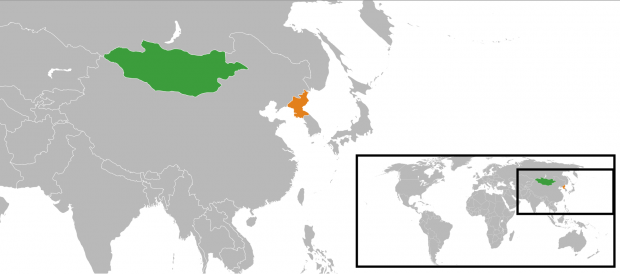Mongolia’s Historic Ties with North Korea
 The news of the killing of Kim Jong Nam, estranged half- brother of North Korean leader Kim Jong-un, on 14 February in Malaysia Airport has garnered interest in Mongolia and has been widely covered by Mongolia’s media.
The news of the killing of Kim Jong Nam, estranged half- brother of North Korean leader Kim Jong-un, on 14 February in Malaysia Airport has garnered interest in Mongolia and has been widely covered by Mongolia’s media.
This interest in North Korean affairs stems from the Mongolian’s historical relationship with North Korea dating back to 1948 when the two countries established diplomatic relations.
Mongolia is highly unusual that despite being a democracy enjoys a longstanding warm relationship with its strategic partner South Korea and North Korea’s authoritarian regime.
This can be explained by Mongolia’s foreign policy called “Third neighbor” adopted in 1990 since its successful transition from communist rule to democracy without bloodshed.
Mongolia is sandwiched between two giants China and Russia. As part of the policy Mongolia purses building relationships to countries- namely the United States, Japan, Turkey and South Korea; beyond its bordering superpower neighbors to counter the competitive struggle for influence over Mongolia.
In recent years, Mongolia has become a participating state in the Organization for Security and Cooperation in Europe, a member of the United nations, NAM (the Non- Aligned Movement) and while partnering with the European Union and NATO.
Essentially “Third neighbor” policy allows Mongolia to take on middle ground when it comes to North and South Korea.
Mongolia was the second country to recognize the DPRK after it established and took more than 400 war orphans following the Korean War. Over the years Mongolia has also supplied food aid to North Korea.
Since 2012 Mongolia has successfully hosted talks between Japan and North Korea on Japanese citizens abducted by North Korea. And in 2014 Mongolia hosted the first ever reunion between the family of one of the abductees.
In 2013 Mongolia’s president, Elbegdorj Tsakhia, was the first head of state to visit North Korea since Kim Jong-un assumed power. The four-day state visit marked the 65th anniversary of bilateral diplomatic relations and the 25th anniversary of the Democratic People’s Republic of Korea’s founder, Kim Il Sung’ s, visit Ulaanbaatar.
Mongolian and South Korean relationship has also thrived since the two countries began its diplomatic relationship in 1990.
South Korea has become one of largest aid donor to Mongolia and its important trade partner. South Korea also hosts the largest overseas Mongolian guest-worker community. And Mongolia is home to several thousands of South Koreans as they reside as long term residents.
Mongolia’s independent foreign policy with its non-nuclear status and its unintimidating nature could explain the growing relationship between Mongolia and North Korea, and has placed Mongolia in a key position to serve as mediation in helping to ease regional tensions with North Korea and at the same time strengthen its own national independence.
While the Mongolian government condemns North Korea’s nuclear programs, Mongolia continues to believe in peace negotiations, seeking stable diplomatic and economic solutions to overcome regional issues on the Korean peninsula.
For North Korea, strengthening its ties with Mongolia could be beneficial for allowing it to mitigate its isolation and bringing in measured economic modernization.
Tuul Chuluunbaatar, Ulaanbaatar, Mongolia


























































